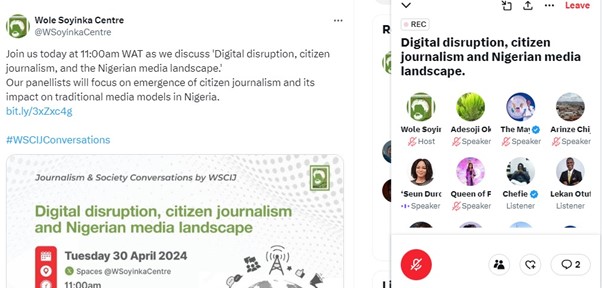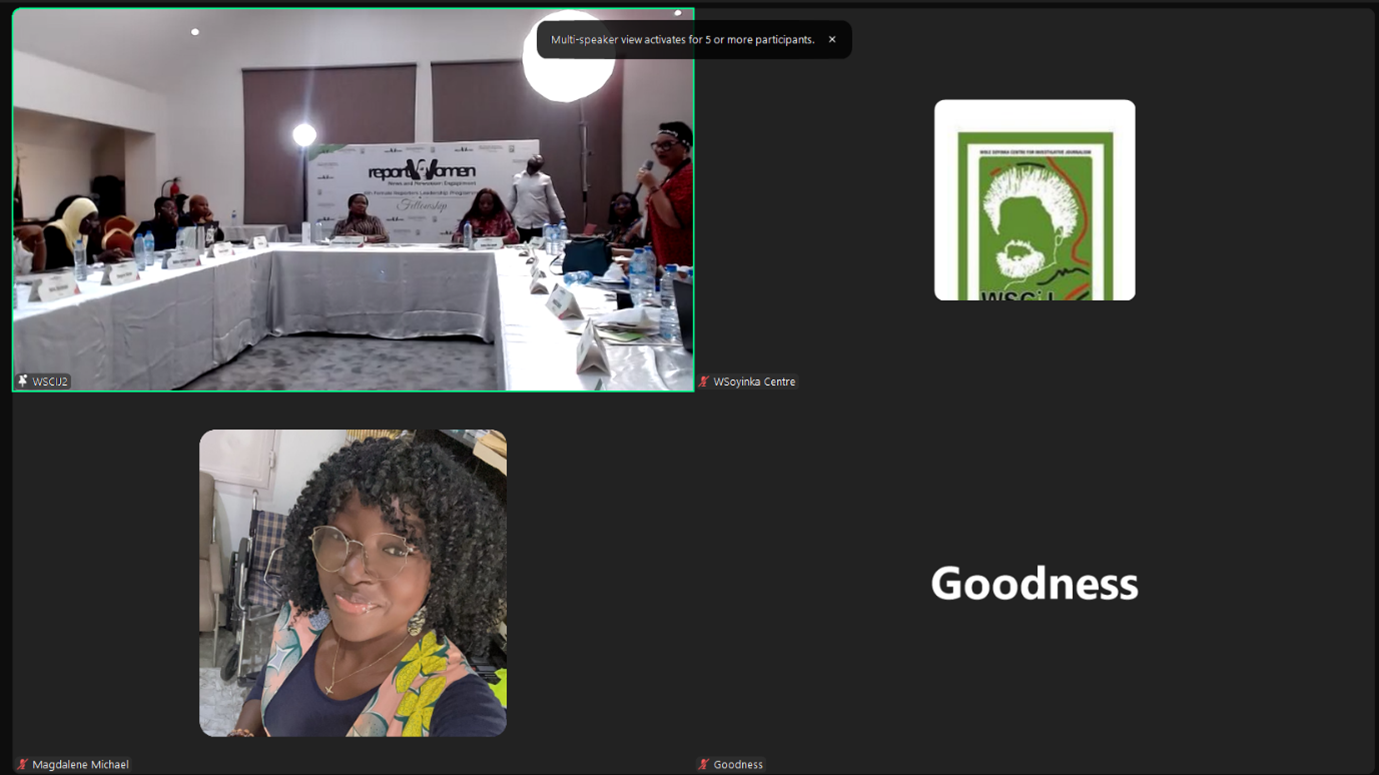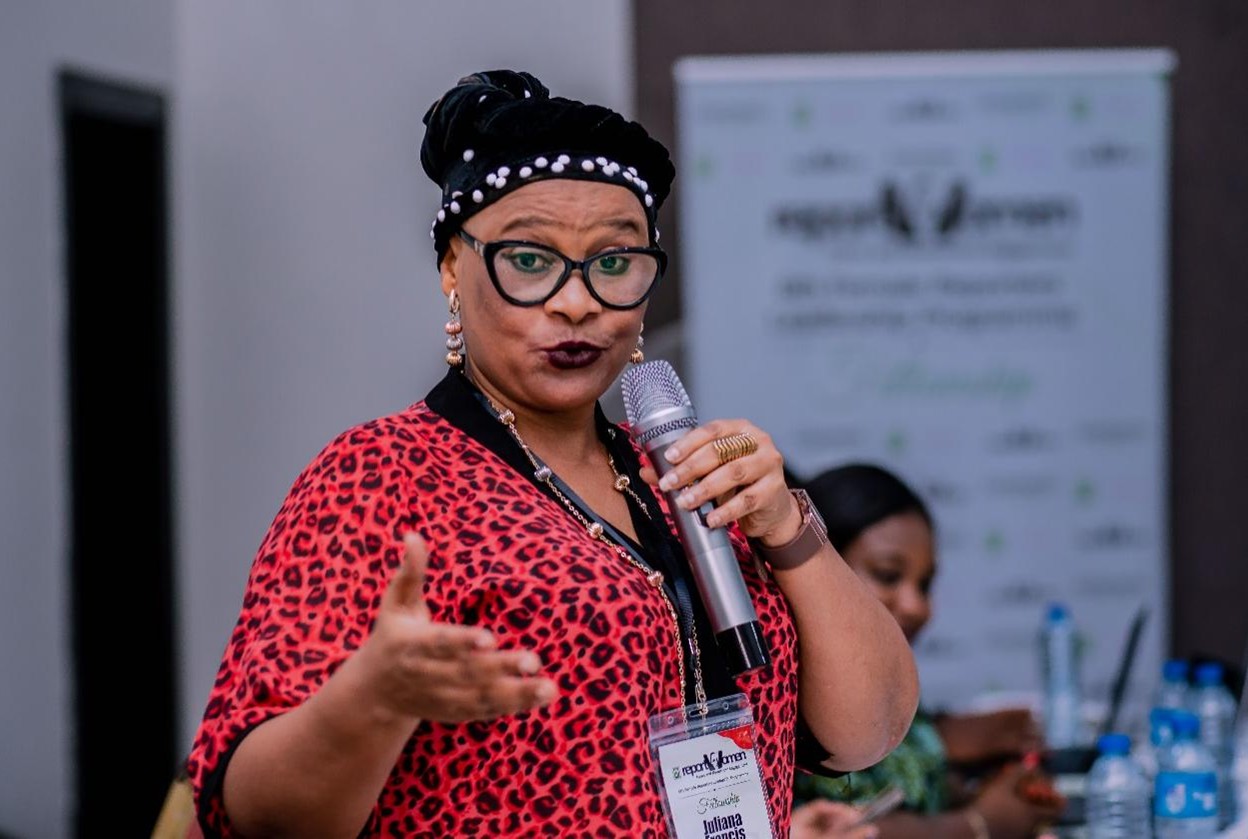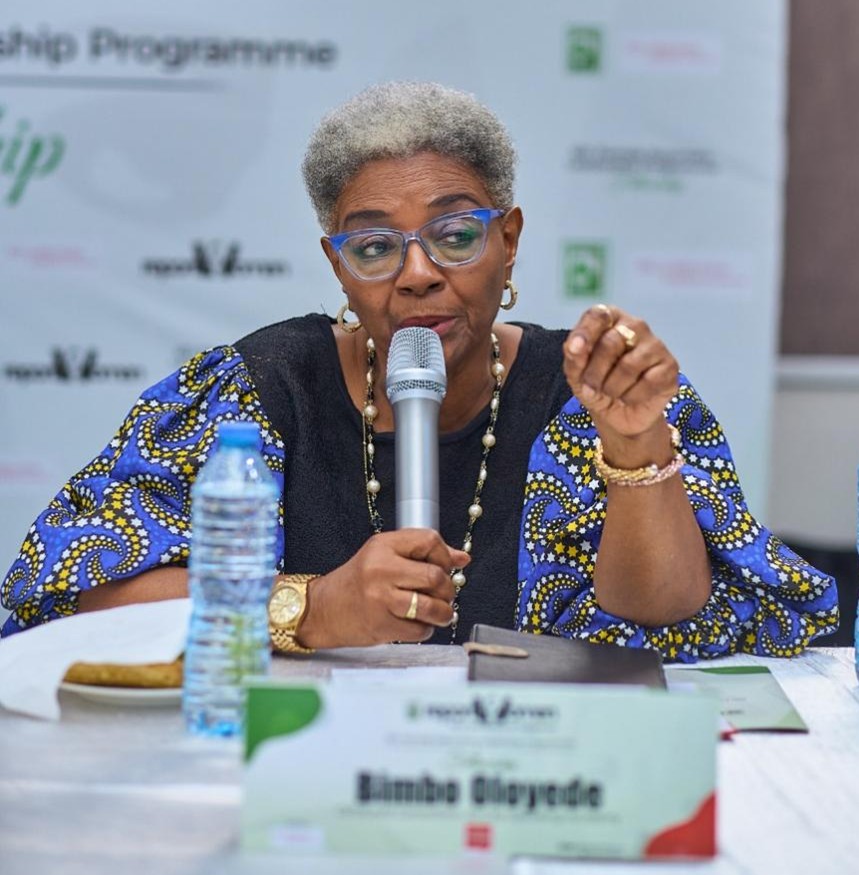Journalists must adapt to technological changes, embrace creativity, collaborate ethically with citizen journalists, and engage online, or risk losing influence in shaping opinions and driving conversations. These were the foci at the Journalism & Society Conversations hosted by the Wole Soyinka Centre for Investigative Journalism (WSCIJ) on April 30, 2024, themed ‘Digital disruption, citizen journalism, and the Nigerian media landscape.’ The conversation featured Arinze Chijioke, freelance multimedia journalist; Mayowa Tijani, Independent Editor, TheCable Newspaper; Zainab Bala, Executive Director, The Scoop Storytelling Initiative; Oluwaseun Durojaiye, Managing Editor, Social Voices and Adekunle Yusuf, Associate Editor/Head, Investigations Desk, The Nation. Zainab Sanni, Managing Editor, Development News Nigeria (DNN), moderated the session.
During the virtual conversation, Tijani noted the importance of media responsiveness to audience needs and perspectives for effective audience mapping and content creation. He attributed the rapid increase in social media usage in Nigeria to its youthful demographic, noting its use as a tool to voice their opinions. Consequently, traditional media outlets must integrate technology and social media platforms while pursuing collaborations to remain relevant. Tijani highlighted the global nature of the media landscape, stressing the significance of considering time zones in content delivery, audience engagement, and story dissemination. He warned that a decline in journalistic ethics is inevitable without active social media engagement of trained professionals on pertinent issues.
Explaining the rise of citizen journalism, Bala noted that mainstream media often lack the workforce and funding to report all issues comprehensively and amplify marginalised voices. Referencing the banditry and humanitarian crisis in the North-East, she said citizen journalists are breaking new ground. Despite citizen journalists filling these vacuums, Bala said professional journalists still occupy a respected position due to their adherence to professionalism and impartiality, especially in countering misinformation amidst the proliferation of citizen journalism.
Arinze highlighted the transformative impact of citizen journalism and noted the swift dissemination of news via social media platforms compared to the lengthier editorial processes of traditional outlets. He emphasised that many traditional media platforms still rely on text-based content despite a growing preference among audiences for colourful and concise multimedia messages due to shortened attention spans. The freelance multimedia journalist observed a shift in advertisers’ preference towards citizen journalists on social media, attributing this to their extensive reach. He said this has affected the income streams of media organisations. He underscored the audience’s enhanced ability to engage with news content and express their opinions as a positive disruption to news consumption, advocating for media innovation, active online presence, and visually compelling storytelling.
Discussing the rise of citizen journalism, Durojaiye highlighted the role of traditional media platforms in its genesis, noting that they laid the groundwork even before the widespread acceptance of social media in Nigeria. She credited Channels Television’s eye-witness report initiative as a pioneering effort in citizen journalism. Durojaiye observed that technology is not a threat to journalism but a clarion call to embrace advanced strategies like data journalism for engagement and audience retention. She alluded to the challenges posed by live features on various social media platforms, making fact-checking claims and stories more arduous. Consequently, Durojaiye advocated for professional journalists to step in and fill this gap by diligently fact-checking claims.
Yusuf reinforced the need for the media to embrace innovation and engage in ethical collaborations with citizen journalists amidst these technological advancements. In his contributions, Lekan Otufodunrin, former Managing Editor, Online and Special Publications, The Nation, contends that traditional journalism and citizen journalism are not in direct competition. He observed that while many citizens possess platforms for sharing content, journalism entails much more than mere information dissemination. He recommended that Nigerian media house management and editorial boards adopt a more flexible approach to enable their reporters to maximise available opportunities provided by technology.
Bimbo Oloyede, a retired television journalist and former newscaster at the Nigerian Television Authority (NTA), lamented the trend of live-streaming tragic incidents on social media and emphasised the necessity of prioritising compassion over the mere dissemination of content. Other contributors warned against excessive reliance on artificial intelligence, urging professionals to stay abreast of evolving trends as adaptability is germane for survival in an ever-changing landscape.
In her remarks, Motunrayo Alaka, Executive Director/CEO, WSCIJ, acknowledged the challenges of misinformation and the changing role of journalists in a digital age, while highlighting opportunities for innovation and collaboration. Represented by Okikiade Adesoji, Communications Executive, WSCIJ, she emphasised the importance of citizen journalism in amplifying voices and holding power accountable, while acknowledging the need to ensure information accuracy and ethical practices.








